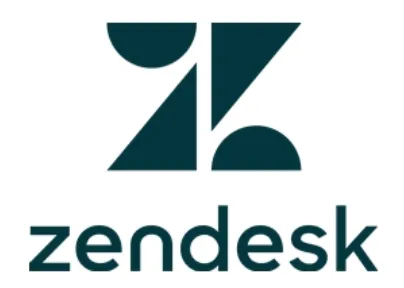
Editorial Disclaimer
This content is published for general information and editorial purposes only. It does not constitute financial, investment, or legal advice, nor should it be relied upon as such. Any mention of companies, platforms, or services does not imply endorsement or recommendation. We are not affiliated with, nor do we accept responsibility for, any third-party entities referenced. Financial markets and company circumstances can change rapidly. Readers should perform their own independent research and seek professional advice before making any financial or investment decisions.
AI is reshaping how ecommerce brands handle customer service.
Basically, AI customer service software now takes on everything from order tracking to personalised support, helping businesses scale without adding endless human agents. And the result you get is faster response times, lower costs, and more consistent customer experiences across multiple channels.
In this guide, we’ll review the top 10 customer service AI agent platforms for ecommerce in 2026, showing you what each platform offers, how they work, and where they fit best in your support operations.
An AI agent for ecommerce is software that applies artificial intelligence to handle customer support, sales, and engagement across multiple channels. You can use these advanced AI agents to respond to customer inquiries, manage order tracking, and deliver personalized support without needing constant human agents.
With natural language processing and customer data analysis, an AI agent platform can help your online store streamline operations, boost sales, and provide consistent customer service throughout the customer journey.
The top customer service AI agent platforms for ecommerce in 2026 vary depending on your business priorities. Each platform offers distinct strengths, from automation depth to analytics. Here’s our breakdown:

Text App is an AI customer service platform built for e-commerce brands that need unified chat, helpdesk, and automation. It integrates live chat, AI chatbots, and workflow automation into a single AI customer service tool, reducing manual handling and boosting resolution speed. Verified users on G2 often cite its ease of use, multilingual support, and measurable efficiency. With strong adoption among DTC retailers, Text App is widely recognised as one of the top customer service AI agent platforms for e-commerce in 2026.
Main features:
Rating: 5.0
Pricing: From $25/user/month | 14-day free trial available
Pros & Cons:
Best for: E-commerce retailers that want AI customer service automation software to handle most interactions.

Zowie is an AI-driven customer service automation software developed for e-commerce businesses and fast-growth brands that require advanced AI agents to manage support operations. The platform uses a proprietary Decision Engine to automate both simple and complex customer inquiries across chat, email, and voice channels. With a G2 rating of 4.7 from more than 150 verified reviews, it is widely adopted for automating order tracking, refunds, and account updates.
Main features:
Rating G2: 4.7
Pricing: From $10/user/month, quoted directly
Pros & Cons:
Best for: Small and midsize ecommerce businesses seeking AI customer service automation software with fast onboarding.

Tidio is an AI-powered customer service platform designed for e-commerce businesses, combining live chat, multi-channel messaging, and conversational AI in one agent platform. Its Lyro chatbot uses generative AI to resolve customer inquiries across web chat, Messenger, Instagram, and email, while handing over complex issues to human agents when required. Moreover, the Lyro chatbot is available as a paid add-on beginning at $39 for 100 AI conversations.
Main features:
Rating G2: 4.7
Pricing: Free plan | Paid plans from $24.17/month
Pros & Cons:
Best for: SMB ecommerce merchants that want AI customer service automation software to keep human agents for complex cases.

Intercom Fin AI is an AI-powered customer service automation tool integrated into the Intercom platform, designed to reduce support operations for ecommerce businesses and enterprise teams. The AI agent resolves customer inquiries using internal documentation, FAQs, and connected systems, with the ability to automate more than 50% of support conversations. It supports multi-step conversational AI, provides context tracking, and integrates with CRM workflows. Intercom Fin operates on an outcome-based model charging $0.99 per resolved query in addition to platform subscription costs starting at $39 per user monthly.
Main features:
Rating G2: 4.6
Pricing: From $39/user/month + $0.99 per resolution
Pros & Cons:
Best for: E-commerce brands already using Intercom that want to implement AI agents for frontline ticket automation.

Zendesk AI is a suite of AI-powered automation tools integrated into the Zendesk platform, built to optimise customer support operations for e-commerce businesses and larger organisations. The system includes AI Agents for conversational AI handling of customer inquiries, a Copilot for assisting human agents, and Intelligent Triage for automatic ticket routing. It supports over 30 languages, connects with e-commerce platforms, and provides analytics to track customer interactions and order tracking processes. Zendesk AI has a G2 rating of 4.3 from more than 1,800 reviews, and its AI capabilities are available on Support Professional plans from $55 per user monthly, with add-on fees for advanced automation.
Main features:
Rating G2: 4.3
Pricing: From $55/user/month + add-ons
Pros & Cons:
Best for: E-commerce businesses using Zendesk that require AI-powered automation for customer inquiries and faster response times.

Ada is an enterprise-grade AI customer service platform used to automate customer inquiries across chat, messaging, email, and voice. It features a proprietary Reasoning Engine that applies natural language processing and sentiment analysis to interpret intent, enabling AI agents to handle complex issues and personalise customer interactions. The system supports over 50 languages, connects with e-commerce platforms such as Shopify, and integrates with CRMs to manage customer data within support operations.
Main features:
Rating G2: 4.6
Pricing: From ~$4,000 annually (custom quote)
Pros & Cons:
Best for: Large ecommerce businesses seeking to manage high-volume support and provide consistent customer service.

Gorgias is an AI customer service platform designed for ecommerce businesses, with native integrations into Shopify, Magento, and other e-commerce platforms. Its AI Agent uses real-time customer data and order tracking to automate up to 60% of routine customer inquiries, covering tasks such as refunds, shipping updates, and account changes. The July 2025 release of Gorgias AI Agent 2.0 added contextual decision-making and sales optimization tools, linking customer support directly to conversion and revenue.
Main features:
Rating G2: 4.7
Pricing: From $10/month (ticket-based tiers)
Pros & Cons:
Best for: E-commerce brands using Shopify or Magento that want to automate customer support and boost sales through AI-powered interactions.

Drift is a conversational AI platform built for real-time customer interactions, combining AI agents and chatbots with sales and support workflows. While widely used in B2B, ecommerce businesses also apply Drift to qualify leads, manage customer inquiries, and provide immediate assistance through AI-powered chat. Its system integrates with CRMs and e-commerce platforms to support order tracking, subscription management, and sales optimisation.
Main features:
Rating G2: 4.4
Pricing: From $2,500/year
Pros & Cons:
Best for: E-commerce businesses seeking to combine sales optimisation with customer support, using conversational AI to boost sales.

HubSpot in 2025 operates as a unified AI-powered platform for marketing, sales, and customer service, integrating CRM data with automation through its Breeze AI suite. The system includes over 80 embedded AI features, AI agents across multiple workflows, predictive analytics, and Copilot assistants for sales and support teams. For e-commerce businesses, HubSpot provides conversational AI for chat, email, and social messaging, while syncing order tracking, customer data, and campaigns within one platform.
Main features:
Rating G2: 4.6
Pricing: Free plan | Paid plans from $20–$25/month
Pros & Cons:
Best for: E-commerce businesses seeking an AI agent platform that unifies marketing, sales, and customer support, with predictive analytics.

Freshchat is an AI-powered customer messaging platform developed by Freshworks, designed for omnichannel engagement across web, mobile, and social media. Its Freddy AI suite automates up to 70–80% of routine customer inquiries through conversational AI, while Copilot tools assist human agents with reply suggestions and summaries. For e-commerce businesses, Freshchat connects to platforms such as WhatsApp, Facebook, Instagram, and CRMs, supporting order tracking, proactive support, and customer interactions at scale.
Main features:
Rating G2: 4.4
Pricing: From $19/agent/month
Pros & Cons:
Best for: Mid-sized and large e-commerce businesses that need AI automation software to centralise conversations.
We based our evaluation on independent data, user feedback, and verified benchmarks. Sources like G2, Capterra, and Clutch provided reliable insights into performance, usability, and satisfaction. We also considered platform documentation, pricing transparency, and e-commerce integrations.
Key factors we measured:
AI customer service platforms have become central to e-commerce by automating customer inquiries, supporting order tracking, and improving response times across multiple channels. They integrate with e-commerce platforms, reduce the workload on human agents, and create consistent customer service throughout the customer journey.
Among the options available in 2026, Text App stands out as the best choice for e-commerce businesses, combining live chat, AI-native helpdesk, and automation into one platform that supports measurable growth.
The primary benefit is automating routine customer inquiries, such as order tracking and refund requests. This frees up your human agents to handle more complex issues, reduces response times, and allows you to provide consistent 24/7 support, improving the overall customer experience.
Tidio is an excellent choice for small to midsize businesses. It offers a free plan that includes live chat and multi-channel messaging. You can add its Lyro AI chatbot as a paid feature when you're ready to scale your automation efforts.
Most modern AI agent platforms are designed with user-friendliness in mind. Many, like Zowie and Ada, feature no-code or low-code workflow builders, allowing you to create and manage automation without needing to write any code. However, more complex setups might require some initial learning.
Yes, several platforms are built for global e-commerce. Ada supports over 50 languages, and Text App also offers strong multilingual capabilities, making them ideal for businesses serving an international customer base.
Gorgias integrates deeply with e-commerce platforms like Shopify, allowing its AI to use order data to upsell or resolve issues that might prevent a sale. Drift focuses on conversational AI to engage website visitors in real-time, qualify leads, and direct them to sales teams, effectively turning support interactions into sales opportunities.